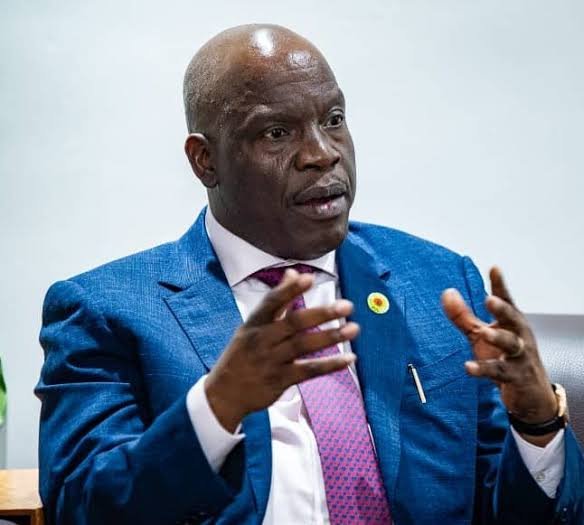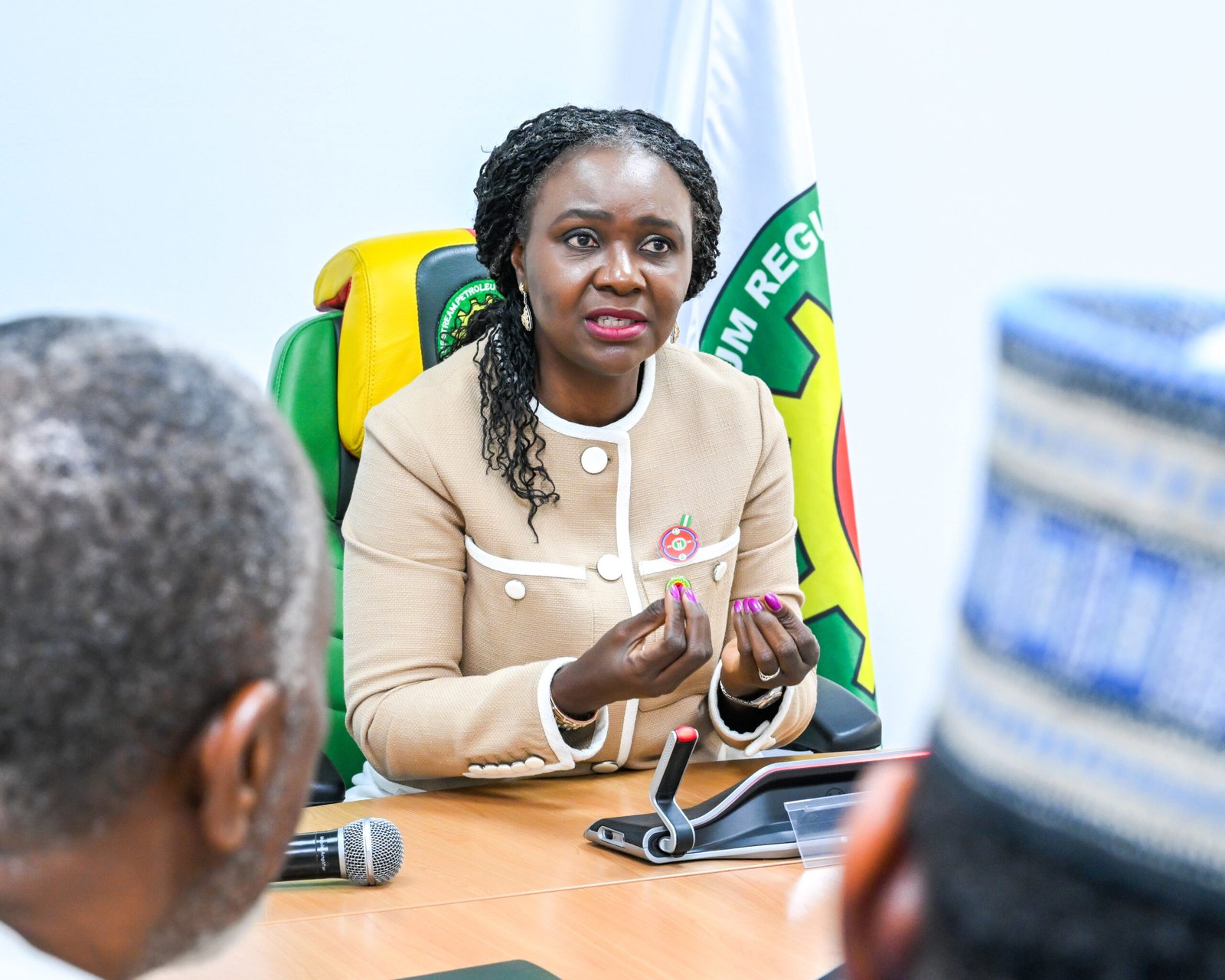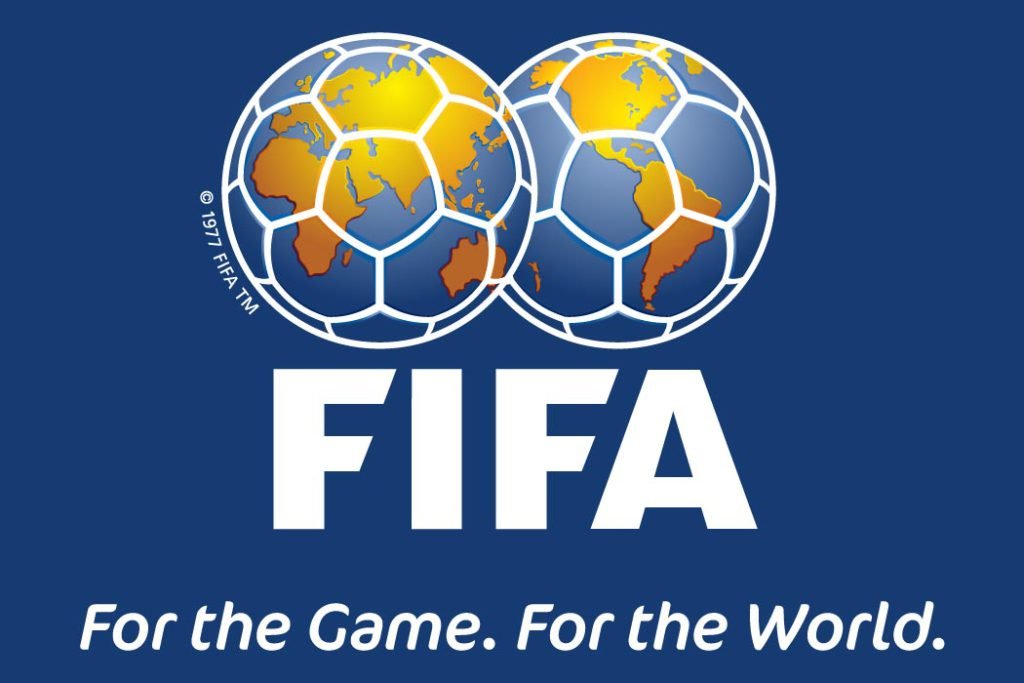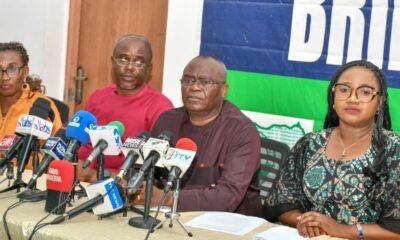Opinion
Gbenga Komolafe And His Transformational Leadership At NUPRC

By Olisa Mbakwe
Like a master builder laying the foundation for a towering skyscraper, Engr. Gbenga Komolafe is constructing a new framework for Nigeria’s oil and gas industry. With each strategic move, he’s adding a new layer of strength, transparency, and innovation, transforming the sector into a robust and thriving entity. As the head of the Nigerian Upstream Petroleum Regulatory Commission (NUPRC), Engr. Komolafe is the driving force behind this ambitious project, and his vision is taking shape with remarkable speed and precision.
Innovation is one of the buzzwords that has gained strong radiation in the world of development and growth. Its strength lies in the fact that for anyone to stay ahead of the competition, in these contemporary times, remain relevant and improve on the status quo, there is a critical need to innovate. This does not mean that in all cases, critical thinking and innovative strategic solutions work.
In all cases, the ability to strategically conceive, create and innovate must be matched by the ability to combine and extend the frontiers of technological knowledge with the capability and capacity to overcome unexpected problems imaginatively. This is the story of the NUPRC led by Engr. Komolafe Gbenga. Ever since coming on board, he has devised several innovative ways of transforming and bringing sanity to the Agency.
A highly pragmatic and dynamic professional, his foresightedness created radical transformational changes in the major areas of reducing crude oil theft, fostering transparency, increasing production capacity, enhancing investor confidence, and ensuring uninterrupted crude supply to local refineries. His introduction of the non-kinetic means of curbing oil thefts greatly reduced the menace to 5,000 BOPD and stabilized production to a consistent 1.7 million BOPD with high possibility of an increased production of 1 million BOPD by December 2026 under the Project 1 MMBOPD initiative, while collaborating with operators, service providers, financiers, and host communities.
His deliberate to rewrite the performance of the Agency and strategically raise the bar of Nigeria’s oil and gas potentials in the global rating has led to the position the country now holds as African’s largest gas reserve holder and the second-largest oil reserve holder of the continent, while its oil reserve is estimated at 37.5 billion barrels, with its gas standing at 209 trillion cubic feet (TCF).
In a demonstration of outstanding leadership and superlative performance, Engr. Gbenga grew oil production in Nigeria to an excellent average of 1.75 billion standard cubic feet (SCFD) on a daily average and an enviable gas production rate of 7 billion standard cubic feet per day (SCFD).
In order to foster transparency and enhance strong collaboration in the area of regulation, Engr Gbenga relying on the instruments of the 2011 Petroleum Industry Act (PIA), the 10-year Regulatory and Corporate Strategic Plan (2023 – 2033) and the 2024 Regulatory Action Plan, which promotes strategic industry reforms, Engr. Komolafe fostered turnaround in several areas such as increasing oil and gas reserves, decarbonization within the upstream operations, enhancing cost efficiency, maintaining stability and general confidence building with the host communities, and importantly bringing to an appreciable level the carbon footprint of the oil and gas activities.
In demonstration of inclusivity and in order to foster global participation, he launch a licensing Round, an initiative that brought in 24 oil and gas assets to international and local investors further amplifying Nigeria’s energy potentials. Engr. Gbenga initiated the Nigeria Gas Flare Commercialization Programme (NGFCP) and the Carbon Credits Earning Framework, both are flagship project aimed at not just eliminating the challenges of gas flaring but also reducing methane emissions, encourage carbon capture technologies, monetize the decarbonization strategy and also remain at the vanguard of the country’s energy transition and also promote sustainable energy practices.
Engr. Gbenga also established a robust Host Community Engagement and Regulatory Transparency Committee, this committee brought about the 137 Host Communities Development Trust (HCDTs), and the establishment of an Alternative Dispute Resolution Centre (ADRC), which has been pivotal in subsequent interface, conflict resolutions, and the observed reduction in the disruption of oil and gas operations within the region.
Engr. Gbenga has created an ambience supportive of a growing investment and a robust policy direction coupled with a consistent record of implementation which has assured the global industry his determination to lead one of the highest oil and gas industrial hub in the world. Through strengthening of strategic alliance engagement of various oil producers and collaboration, he has been able to reduce carbon emission and assured the supply of domestic crude. He has also been able to boost an industry wide collaboration on deep play exploration and deepen financial collaboration.
These sundry reforms coupled with a strong fiscal regulation in areas such as fiscal oil price determination, hydrocarbon metering, and cargo declaration systems, have led to consistent and rising financial growth and the blocking of revenue leakages, and consequent mitigation against oil theft, which has seen the industry surpassing its 2024 revenue projection with an internally generated revenue of over 84 percent.
Engr. Gbenga is setting the pace through innovative reforms and significant collaborative deft moves, integration, and inclusivity, thereby making the Nigerian Upstream Petroleum Regulatory Commission (NUPRC) Africa’s leading regulator and promoting sustainable value creation from the country’s petroleum resources for shared prosperity.
Through Engr. Gbenga’s impact and deliberate transformative leadership style, NUPRC has restored sanity within the oil and gas sector. In keeping to his promise that he will restore sanity to the industry during his appearance at the Senate, Engr Gbenga Komolafe has not only restored sanity but has gone ahead to build the needed confidence in the industry, thereby attracting foreign direct investment and various local and international players into the industry.
Today, many of the multi-nationals that had signed to leave the country because of the lack of confidence in the sector are al having a rethink now. These companies are all contemplating something new and different now, as they have seen the fortune they desire in the industry. Indeed, Engr Gbenga Komolafe is writing a story of stability, honesty and fruitfulness in the NUPRC, making the industry one of the most competitive global players and setting Nigeria as a continental pacesetter in oil and gas production.
Mbakwe an oil and gas project manager wrote this piece from Port Harcourt..
Opinion
No More Pipeline Vandalism in The Niger Delta, But…

APPRAISING MILITARY RESOLVE AND THE PATH TO SUSTAINABLE OIL SECURITY
By Aaron Mike Odeh
On a recent media assessment visit by the Director, Defence Media Operations, Major General Michael E Onoja on the 20 January 2026, the General Officer Commanding (GOC), 6 Division of the Nigerian Army and Commander Land Component Operation DELTA SAFE, Major General Emmanuel Emeka, stated that there will be “no more pipeline vandalism in the Niger Delta” indicating a strong affirmation of military resolve and institutional confidence in the ongoing operations within Nigeria’s most economically strategic region.
Far from being a casual statement, the pronouncement reflects the operational posture, command clarity, and renewed determination of the Nigerian Armed Forces (AFN) under the leadership of General Olufemi Oluyede. It signals a clear message: the era of unchecked sabotage of national economic assets is being decisively confronted.
CONTEXTUALISING THE GOC’S DECLARATION
Statements of this magnitude from a serving GOC carry both symbolic and operational weight. They are rooted in firsthand command experience, intelligence assessments, and measurable gains on the ground. In this regard, Major General Emmanuel Emeka’s assertion should be understood as a projection of confidence derived from sustained military engagement, improved coordination with sister security agencies, and enhanced operational discipline within the 6 Division’s area of responsibility.
The Niger Delta has long posed complex security challenges due to its difficult terrain, extensive pipeline networks, and the activities of organised criminal syndicates. Against this backdrop, the GOC’s declaration underscores a belief that the Nigerian Armed Forces has reached a level of operational advantage sufficient to deter, disrupt, and dismantle pipeline vandalism networks.
OPERATIONAL GAINS AND MILITARY PROFESSIONALISM
Under Major General Emmanuel Emeka’s command, the 6 Division has intensified patrols, improved intelligence-led operations, and sustained pressure on illegal refining camps and crude oil theft routes. These efforts align with the Federal Government’s strategic objective of securing oil infrastructure as a matter of national economic security.
The GOC’s statement therefore reflects not mere optimism, but a professional assessment of the division’s growing capacity to dominate the operational environment. It also reinforces the Nigerian Armed Forces constitutional role as a stabilising force, committed to safeguarding national assets in support of economic recovery and investor confidence.
THE “BUT”: BEYOND KINETIC SUCCESS
While commending the resolve and achievements of the 6 Division, it is equally important to situate the declaration within a broader national framework. The “but” in the statement should not be interpreted as doubt or contradiction; rather, it represents an acknowledgment of the multifaceted nature of pipeline security in the Niger Delta.
Pipeline vandalism has historically been sustained not only by criminal intent, but also by socioeconomic pressures, environmental degradation, and the absence of alternative livelihoods in some host communities. Military success, while indispensable, achieves greater durability when complemented by effective civil governance, economic inclusion, and community trust-building.
COMMUNITY ENGAGEMENT AS A FORCE MULTIPLIER
One of the strengths of recent military operations in the Niger Delta has been improved civil-military relations. The success of the Armed Forces is closely tied to cooperation from local communities, traditional institutions, and credible stakeholders.
Sustainable pipeline security is most effective when host communities become partners in protection rather than passive observers. The GOC’s declaration implicitly places responsibility on all stakeholders—government agencies, oil companies, community leaders, and youths—to consolidate the gains made by the Armed Forces.
INSTITUTIONAL SYNERGY AND NATIONAL RESPONSIBILITY
The efforts of the 6 Division do not exist in isolation. They form part of a wider national security ecosystem involving regulatory agencies, intelligence services, law enforcement bodies, and policy institutions. The GOC’s confidence should therefore inspire complementary actions across these sectors.
Oil companies must uphold environmental standards and transparent community engagement. Regulatory bodies must enforce accountability. Development agencies must deliver visible dividends of peace. These non-military actions reinforce the security umbrella provided by the Nigerian Armed Forces.
LEADERSHIP AND STRATEGIC MESSAGING
Major General Emmanuel Emeka’s statement also serves as strategic communication—boosting troop morale, reassuring investors, and reinforcing public confidence in the Armed Forces of Nigeria. Such leadership messaging is essential in shaping national narratives around security, discipline, and state authority.
By articulating a firm stance against pipeline vandalism, the GOC is not only commanding troops, but shaping expectations and setting benchmarks for operational success.
CONCLUSION
The declaration that there will be “no more pipeline vandalism in the Niger Delta” should be seen as a reflection of strengthened military capacity, improved leadership focus, and renewed institutional confidence under Major General Emmanuel Emeka, GOC 6 Division of the Armed Forces.
The Nigerian Armed Forces has demonstrated readiness to secure critical national assets. The task ahead is to consolidate these gains through sustained operations, inter-agency synergy, and socio-economic interventions that address underlying vulnerabilities.
In this context, the GOC’s statement stands as both an assurance and a call to collective national responsibility—one that deserves commendation, support, and strategic follow-through.
Aaron Mike Odeh, a Public Affairs Analyst Media Consultant and Community Development Advocator wrote from Post Army Housing Estate Kurudu Abuja
Opinion
Appraising NUPRC’s New Tempo

By Grace Ameh
As a woman who has spent years admiring the quiet strength of sisters carving paths in Nigeria’s demanding energy sector, my heart swelled with genuine joy the moment Chief Mrs. Oritsemeyiwa Eyesan’s appointment as Commission Chief Executive of the Nigerian Upstream Petroleum Regulatory Commission was announced.
Here stands a remarkable daughter of the Niger Delta, graceful yet fiercely determined, becoming the first woman to lead our nation’s upstream regulator. Her rise feels deeply personal, like watching a beloved sister finally claim the spotlight she has long deserved.
The NUPRC, as a young agency born from the transformative Petroleum Industry Act of 2021, has shouldered enormous responsibilities in a complex and evolving landscape—navigating fluctuating production levels amid global energy shifts, addressing delays in data dissemination that can affect investor planning, tackling the persistent menace of crude oil theft that impacts national revenue, and working to enhance transparency in licensing rounds and asset management for greater stakeholder confidence.
This institution emerged with bold ambitions to modernise regulation, attract investment, and optimise Nigeria’s hydrocarbon resources, yet it has operated in an environment marked by inherited challenges and the need for continuous adaptation to deliver on its mandate.
Then, in December 2025, President Bola Tinubu nominated Chief Mrs Eyesan as the first woman to lead NUPRC, a move swiftly confirmed by the Senate.
My spirit lifted immediately. Chief Eyesan’s journey inspires every woman dreaming big in this field. She holds a Bachelor of Education in Economics from the prestigious University of Benin, graduating in 1986 with a solid foundation in economic theory, market analysis, and project evaluation—skills that would prove invaluable in the complex world of energy finance and strategy.
Her academic grounding equipped her to navigate large-scale investments and regulatory frameworks with precision. Early in her career, she honed her financial acumen in banking, serving as Branch Manager at People’s Bank of Nigeria and later as Treasury Officer at Gulf Bank, before joining NNPC in 1992.
Over nearly 33 years, she rose steadily through roles in planning, procurement, corporate strategy, and sustainability, culminating as Executive Vice President, Upstream, until her retirement in November 2024. In that position, she oversaw strategic management of Nigeria’s upstream operations, led sustainability initiatives, strengthened financial discipline, and guided critical reforms aligned with the PIA.
Since assuming office, Chief Eyesan has brought a refreshing wave of purpose and collaboration to NUPRC. Her patriotic commitment shines brightly as she aligns the Commission’s work with President Tinubu’s Renewed Hope Agenda, emphasising increased crude oil production to enhance energy security and revenue, accelerated gas monetisation to advance the Decade of Gas vision, and robust transparency measures to rebuild investor trust.
I admire her focus on digitisation; she is thoughtfully integrating digital tools to improve operational efficiency, accountability, and ease of business, cutting through layers of bureaucracy that once slowed progress. Her leadership style feels deeply relatable—inclusive and engaging. With an open-door policy and regular town halls, she encourages staff input while forging stronger ties with stakeholders, labour unions, and professional bodies.
She champions environmentally sustainable practices, ensuring growth does not come at the cost of our land and waters. Her strategic vision unfolds organically: boosting crude reserves and output for economic stability, scaling gas utilisation for power generation and exports, fortifying regulations to attract long-term investments, nurturing technical expertise through partnerships and capacity building, and embedding digitisation hand-in-hand with transparency to foster dynamic, confidence-inspiring growth.
In these early weeks of January 2026, tangible steps are emerging. She has advanced the 2025 licensing round, scheduling a key pre-bid conference for January 14 in Lagos to draw fresh capital into exploration and development. Partnerships, such as deepened synergy with the Nigerian Midstream and Downstream Petroleum Regulatory Authority, highlight her collaborative spirit.
What touches me profoundly is how Chief Eyesan views challenges as opportunities. She inherited an agency needing revitalisation but approaches it with grace, strategy, and unyielding diligence—that workaholic patriotism we so admire in trailblazing women. Her experience positions her uniquely to resolve legacy issues, unlock stranded assets, and position NUPRC as Africa’s premier regulator.
Reflecting on this new era, sisterly pride overwhelms me. Chief Mrs. Oritsemeyiwa Eyesan is truly an Amazon—resilient, visionary, and devoted to Nigeria’s progress. In her capable hands, the upstream sector is not just recovering; it is poised to soar, delivering sustainable wealth for generations.
Dear sister, you embody the hope we renew daily. The light of your leadership illuminates our path forward, proving once again that when a woman of substance rises, the nation rises with her.
*Ameh an Oil and gas expert writes from Kaduna.
Opinion
FIFA World Cup: Counting the costs of Super Eagles missed opportunities

By Victor Okoye
As the football world prepares for the expanded 48-team 2026 FIFA World Cup, Nigeria is facing the prospect of missing the global showpiece for the eighth time since its inception in 1930, a development that has drawn concern from football stakeholders and sports administrators in the country.
The Super Eagles, who made their World Cup debut at USA 1994, have qualified for the finals six times but failed to reach the tournament on seven previous occasions.
Should Nigeria fail to qualify for the 2026 edition, it would mark the eight miss and a second consecutive absence, further highlighting the rising cost of non-participation in an era of unprecedented financial rewards.
Historically, missing the World Cup was largely a sporting setback. Financial incentives were modest in earlier tournaments.
In USA 1994, FIFA’s total prize money stood at about 62 million dollars, with champions Brazil earning roughly four million dollars.
France 1998 offered about 131 million dollars in total prize money, while winners received around six million dollars.
The figures rose steadily to 300 million dollars at Brazil 2014 and 440 million dollars at Russia 2018 and Qatar 2022.
However, FIFA’s recent review has significantly raised the stakes.
The FIFA Council has approved a record 727 million dollars financial package for the 2026 World Cup, to be co-hosted by the United States, Canada and Mexico.
At an estimated exchange rate of 1,500 naira to the dollar, the total sum translates to about 1.09 trillion naira.
Of this amount, 655 million dollars (approximately 982.5 billion naira) will be shared as prize money among the 48 participating teams.
Champions will earn 50 million dollars, runners-up 33 million dollars, third place 29 million dollars and fourth place 27 million dollars.
Teams finishing between fifth and eighth will receive 19 million dollars, ninth to 16th are to receive 15 million dollars, 17th to 32nd will pocket 11 million dollars, while teams ranked 33rd to 48th will earn nine million dollars.
Each qualified nation will also receive 1.5 million dollars as preparation funds.
This guarantees every participating team a minimum of 10.5 million dollars — about 15.75 billion naira — before the tournament begins.
Nigeria’s 2026 qualification campaign ended in disappointment after the Super Eagles finished second behind South Africa in their group and lost the African playoff final to the Democratic Republic of Congo (DR Congo) on penalties.
To date, no public official report has broken down the total operational costs or expenditure to prosecute the 2026 World Cup qualifying campaign (travel, allowances, camps, logistics) but there are concerns and scrutiny over Nigeria Football Federation (NFF) finances.
The scrutiny includes how funds received from FIFA and CAF have been used over the years following the House of Representatives move to probe more than 25 million dollars in FIFA/CAF grants given to the NFF between 2015 and 2025, citing accountability questions.
However, the NFF has petitioned FIFA over alleged player-eligibility breaches by DR Congo, a move that has reopened debate within the football community.
Reacting to the situation, former Super Eagles captain and 1994 AFCON winner, Mutiu Adepoju, described the possibility of another World Cup absence as “a huge setback”.
“Missing one World Cup is painful, but missing two in a row is unacceptable for a country like Nigeria. Beyond pride, the financial loss is enormous and affects football development at all levels,” Adepoju said.
Former NFF Technical Director, Austin Eguavoen, said qualification had become more critical than ever due to the new prize structure.
“In the past, the World Cup was more about exposure. Now, the money involved can change the entire football ecosystem. Missing out means missing an opportunity to invest in grassroots and infrastructure,” Eguavoen said.
Chairman of the Nigeria Premier Football League (NPFL), Gbenga Elegbeleye, said the impact would also be felt in the domestic league.
“When the national team is at the World Cup, it attracts attention to our league and players. Absence reduces visibility, sponsorship interest and confidence in the system,” Elegbeleye said.
Similarly, former Minister of Sports, Solomon Dalung, said Nigeria must treat World Cup qualification as a national project.
“The Super Eagles missing the World Cup repeatedly shows deeper administrative and structural issues. The financial consequences alone should force stakeholders to rethink planning and accountability,” Dalung said.
On the legal challenge before FIFA, NFF Secretary-General, Dr Mohammed Sanusi, confirmed that the matter was under review.
“We have submitted our petition and we are waiting for FIFA’s decision. The rules are clear on nationality and eligibility, and we believe the issues raised deserve careful consideration,” Sanusi said.
If FIFA rules in Nigeria’s favour, the Super Eagles could be reinstated into the intercontinental playoffs, restoring a pathway to qualification and access to guaranteed earnings of at least 15.75 billion naira.
Failure would confirm Nigeria’s eighth World Cup absence, with consequences ranging from lost revenue and reduced global visibility to diminished influence in international football.
With the 2026 World Cup set to deliver the highest financial rewards in FIFA history, stakeholders agree that Nigeria can no longer afford repeated absences from football’s biggest stage.
-

 Cover5 months ago
Cover5 months agoNRC to reposition train services nationwide.. Kayode Opeifa
-

 Fashion9 years ago
Fashion9 years agoThese ’90s fashion trends are making a comeback in 2017
-

 Entertainment9 years ago
Entertainment9 years agoThe final 6 ‘Game of Thrones’ episodes might feel like a full season
-

 Opinion1 year ago
Opinion1 year agoBureaucratic Soldier, Kana Ibrahim heads Ministry of Aviation and Aerospace After Transformative Tenure at Defence
-

 Opinion1 year ago
Opinion1 year agoHon. Daniel Amos Shatters Records, Surpasses Predecessor’s Achievements in Just Two Years
-

 Opinion2 months ago
Opinion2 months agoBarrister Somayina Chigbue, Esq: A rising legal leader shaping institutioal excellence in Nigeria
-

 News6 months ago
News6 months agoNigerian Nafisa defeats 69 Countries at UK Global Final English Competition
-

 Special Report1 year ago
Special Report1 year agoGolden Jubilee: Celebrating Tein Jack-Rich’s Life of Purpose and Impact




